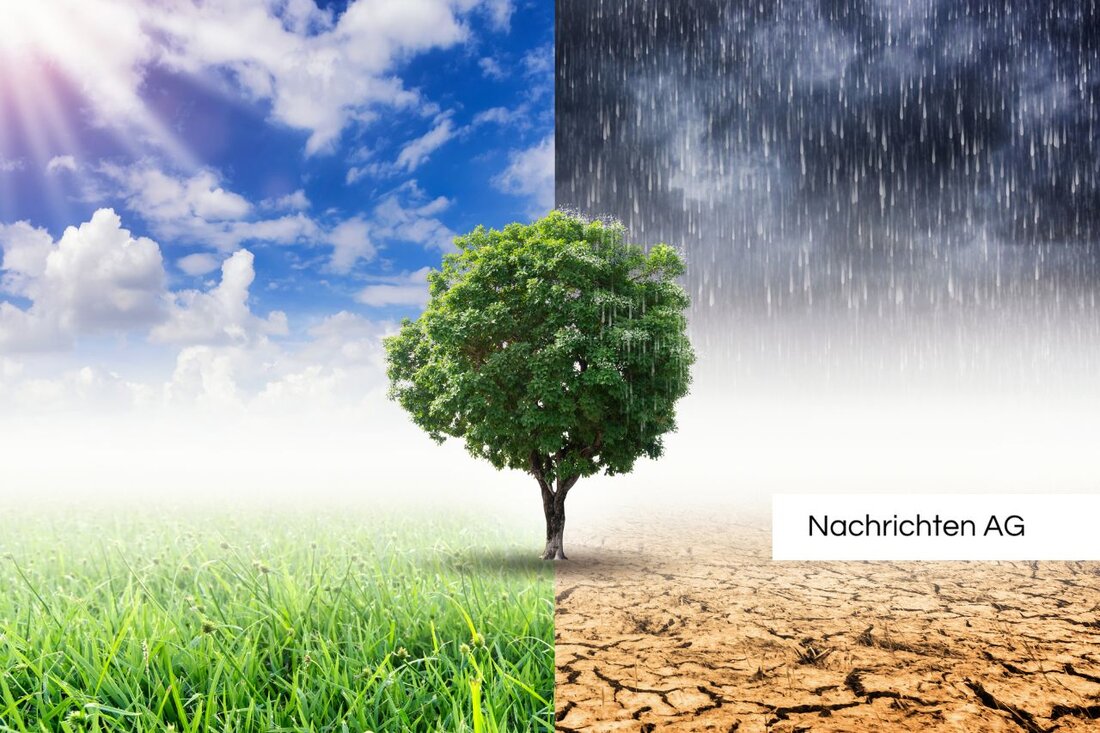Climate change threatens beech forests: growth decline of up to 50% expected!
Research by the University of Göttingen on the climate impact on beech forests: Study shows decline in rainfall and growth.

Climate change threatens beech forests: growth decline of up to 50% expected!
The impacts of climate change on Europe's beech forests are both serious and worrying. A research team from University of Göttingen conducted a comprehensive study to examine how rainfall distribution and climate change affect these important forest ecosystems. The study focused on a beech forest near Ebergötzen, with 30 rain sensors and leaf collection devices installed over seven years. The results show an annual decline of 5.75 percent in the proportion of rain reaching the ground.
The data was published in the scientific journalEnvironmental Research Communicationspublished and reflect the increasing variability of precipitation distribution in Europe. A decrease in the amount of rain and the duration of individual rain events, but an increase in intensity, is observed. Although this decoupling of water movements in the forest ecosystem does not currently lead to acute damage to trees, increasing heterogeneity in soil moisture and microorganism activity is expected in the future.
Growth problems of the common beech
The European beech (Fagus sylvatica) is a central tree species in European deciduous forests. Unfortunately, its development is being severely affected by climate change; In southern Europe in particular, growth has fallen by up to 20 percent over the last 60 years. This alarming information was provided by science.de provided. Forecasts show that this decline will increase in the coming decades, while the few gains in Northern Europe cannot offset the losses in the rest of Europe.
The common beech is the most common deciduous tree species in Germany and takes up around 15 percent of the forest area. Almost 100 beech forest areas in 18 European countries are even listed as UNESCO natural world heritage sites. A study led by Edurne Martinez del Castillo from the University of Mainz examined growth at 324 locations and analyzed over 780,000 tree ring measurements over several decades.
The results show that beech growth has slowed over the last 60 years. While some growth was seen in northern regions of Denmark, Norway and Sweden, beech trees in southern Europe faced significant declines in growth. This is particularly exacerbated by the combination of rising temperatures and falling precipitation with simultaneous heat waves.
Long-term forecasts and adaptation strategies
The future of beech forests looks bleak in view of climate change. Even in optimistic climate scenarios, as in Meteogiornale reports, growth losses of up to 30 percent are expected for southern Europe between 2020 and 2050. In the less favorable scenario, growth rates in Central Europe could fall by 20 to 30 percent and in Southern Europe even by over 50 percent. These frightening predictions highlight the need for urgent action to adapt forests to changing climatic conditions.
In the long term, the introduction of drought-resistant tree species, such as oaks, may even be necessary to mitigate the effects of climate change and promote biodiversity. Increased genetic and structural diversity in forests could also help to significantly reduce risks to ecosystems and prevent collapse of these valuable environments.
The beech forests are not only ecologically and economically important, but also play a central role in water management and regulate the carbon cycle. They require a moist atmosphere with evenly distributed rainfall and well-drained soils. It is therefore essential that appropriate protective measures are taken to secure these valuable habitats.

 Suche
Suche
 Mein Konto
Mein Konto